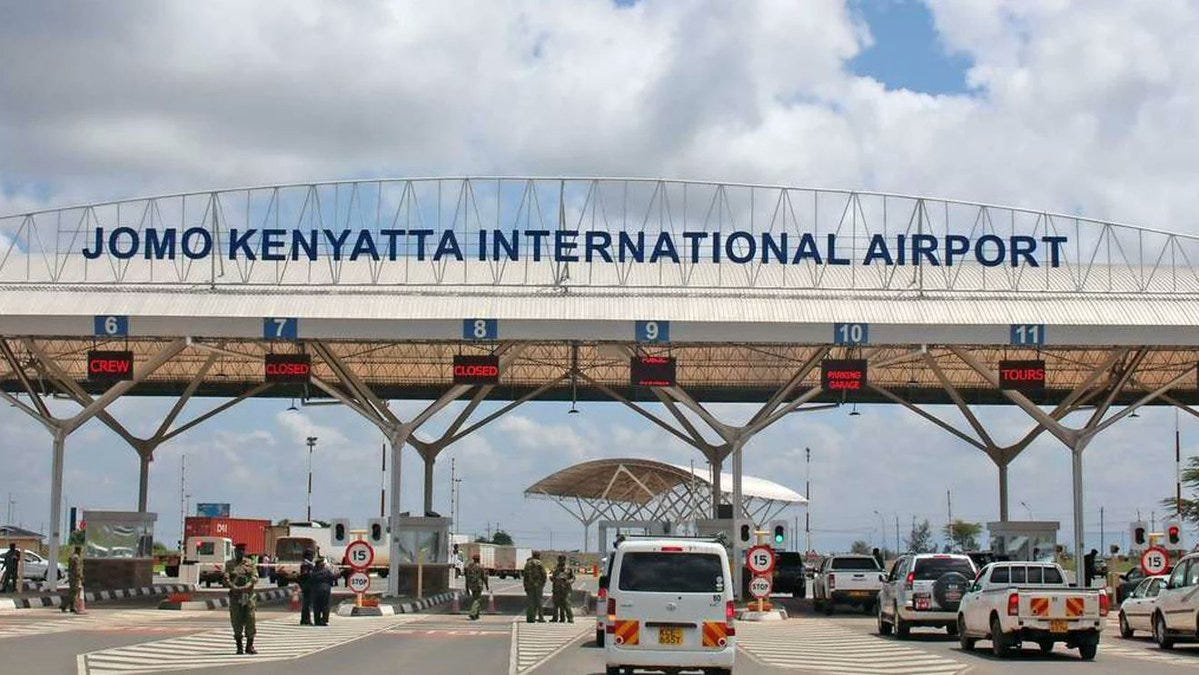Kenya Revenue Authority (KRA) to backdate the new taxes to July 1
Tax agents in Kenya are facing a daunting challenge after the Kenya Revenue Authority (KRA) announced its decision to backdate new taxes to July 1. This move has left employers grappling with a double hit as they prepare to remit taxes that were previously suspended by a court. The KRA's decision to apply taxes from the effective date under the Finance Act 2023 means that any taxes unremitted within the designated five-day window will now be subject to penalties for non-compliance.
According to the Tax Procedures Act of 2015, late tax payments attract a one percent penalty for each month or part of a month the amount remains unpaid. With the new taxes coming into effect retroactively, businesses and individuals are under immense pressure to comply with the updated regulations and avoid incurring penalties. The sudden imposition of backdated taxes has caught many off guard, leading to concerns about financial repercussions for those who were unaware of the change or faced challenges in promptly remitting the required amounts.
Among the hardest hit by this development are commercial banks, which play a significant role in tax collection in Kenya. A survey by the audit firm, PwC, revealed that in 2022, commercial banks collected a substantial amount of Sh37.3 billion in withholding tax, accounting for 25.2 percent of all withholding tax collected by the KRA. Withholding tax in the banking sector is primarily driven by interest expenses on deposits. As a result, banks now find themselves facing the difficult task of ensuring compliance with the new tax regulations and addressing any non-compliance issues from the backdated taxes.
The KRA's decision to backdate new taxes has raised concerns among businesses, tax agents, and employers alike. Many are calling for more transparent communication and support from the tax authorities to navigate this compliance nightmare effectively.
Click here for the full article.
ECONOMY
World’s Leading Institutions Flag Tax Increases and Borrowing Costs as Risks to Kenya's 2023 Growth
Kenya's growth outlook for 2023 faces downside risks, according to a panel of economists from 16 leading banks, consultancies, and think tanks. Despite marginally raising economic prospects, these experts have highlighted concerns over new tax increases and higher borrowing costs. The panelists predict that economic activity will expand by 4.7 percent, a slight improvement from last month's projection of 4.6 percent. They attribute this positive trend to improved agricultural output, which is expected to help ease inflation.
However, economists caution that this year's growth rate is likely to soften compared to the 4.8 percent achieved in 2022. They attribute this anticipated slowdown partly to the negative impact of the Finance Act 2023 on private-sector investment and consumption. In the first quarter of the year, the economy grew by an impressive 5.3 percent, the fastest rate in four quarters, largely due to a rebound in farming activity following a prolonged drought.
Despite the positive start, the economists estimate that economic output slowed in the second quarter, which ended in June, and they anticipate this softening to persist for the remainder of the year. They point to several factors that may act as dampers of growth, including the depreciating shilling and a short supply of dollars. Additionally, increased taxation, coupled with stagnated salaries below the inflation rate for three years, poses further challenges to economic expansion.
The decline in the value of the shilling by 15.62 percent has had mixed effects on the Kenyan economy. While it has boosted the country's earnings from exports, it has also raised the cost of goods in a net import economy.
Click here for the full article
TAX
Consolidated Cargo Pile-Up Leads to Stockouts at Kenyan Airports
Jomo Kenyatta International Airport (JKIA) and Eldoret International Airport are grappling with a mounting backlog of consolidated cargo, as the Kenya Revenue Authority (KRA) persists in its decision to unbundle cargo and impose taxes per item. The situation has caused severe stockouts of essential goods, particularly electronics, cameras, mobile phones, and other accessories. Eldoret International Airport manager, Walter Agong, raised concerns, stating that the facility's last cargo flight arrived over a month ago. Similarly, at JKIA in Nairobi, meaningful clearance of consolidated cargo has come to a standstill.
The Kenya Groupage Cargo Handling Association (KGCHA) chairman, Solomon Muema, attributed the cargo consolidators' problems to their failure to follow the due process of clearance. He emphasized that informal cargo consolidators will continue to face challenges with the taxman until they comply with the required procedures. At present, these consolidators are unable to lodge customs manifests for respective consignees, hindering the entry process.
In an attempt to restore normalcy and address the pressing issues at Eldoret International Airport, the KRA conducted a consultative meeting on Thursday with 25 cargo consolidators from the region. The aim was to address the thorny problems arising from the new taxation system. Starting from June 1, the KRA implemented a 100 percent inspection of imports, enabling tax assessment based on the transaction value of the cargo instead of the previous flat rate of Sh200 per kilogram. Consequently, items that used to end up in open-air markets, such as Gikomba and Nyamakima, are now subject to additional import duties, Value Added Taxes (VAT), excise duty, import declaration levy (IDL), and Railway Development Levy (RDL).
The ongoing standoff between the taxman and cargo consolidators has implications not only on the flow of goods but also on the economy, given the significance of these items for businesses and consumers alike.
Click here for the full article
CAPITAL MARKETS
1. Property developer Acorn is embarking on a bold fundraising endeavor, aiming to raise Sh1.5 billion by January 2024
Property developer Acorn is embarking on an ambitious plan to raise Sh1.5 billion by January 2024 from existing unit holders of its development Real Estate Investment Trust (Reit) for the expansion of its student hostel portfolio. According to the semi-annual report on the Acorn Student Accommodation (ASA) D-Reit, the offer period commenced with a rights issue, successfully raising Sh230.5 million by the end of June. These funds have been allocated to ongoing projects, deposits for land acquisition, and associated costs.
As part of its growth strategy, the ASA D-Reit, which is listed on the Nairobi Securities Exchange's Unquoted Securities Platform (USP), has witnessed a rise in the number of units in issue, increasing to 258.4 million by the end of June from 244.2 million previously. This development has further strengthened the financial position of the ASA D-Reit and laid the groundwork for its expansion plans.
Acorn Investment Management Limited, the parent company of ASA D-Reit, expressed gratitude for the Capital Markets Authority's (CMA) approval of their application to issue a supplementary offering memorandum. This approval marks the second successive year and enables the company to raise additional funds for the issue and subscription of units in the ASA D-Reit.
With a target of Sh1.5 billion for this year, the ASA D-Reit aims to continue its expansion in the student accommodation sector. The extended offer period until January 2024 is expected to facilitate significant progress in acquiring land parcels and covering other project costs within the ASA D-Reit portfolio. Investors and stakeholders are closely watching Acorn's growth trajectory as it strives to meet its funding objectives and strengthen its position in the market.
Click here for the full article
2. Bond Investors Record Net Capital Losses of Sh5.1 Billion Amid Rising Interest Rates on NSE in Q2
In the second quarter of the year, bond investors on the Nairobi Securities Exchange (NSE) experienced net capital losses amounting to Sh5.1 billion as they sold their securities in the secondary market. The decline in prices was attributed to the surge in interest rates on new debt auctions, leading to a majority of listed bonds being traded below their par value. Data released by the Capital Markets Authority (CMA) revealed that many investors incurred losses on their investments, losing a portion of their principal.
Throughout the quarter, bonds with a face or par value totaling Sh152.53 billion were traded on the exchange. However, the consideration realized, also known as the traded turnover, stood at a lower figure of Sh147.39 billion due to the prevalence of price discounts. Medium-tenor bonds with maturities ranging from eight to twelve years suffered the most significant erosion in value during this period. Conversely, infrastructure bonds and recent issuances, which already carry high-interest rates and are less likely to be sold, presented better value for sellers.
The inverse relationship between bond yields and prices was evident during this period, with rising interest rates leading to falling bond prices. As a result, investors faced challenges in maintaining the value of their bond holdings. The market conditions presented a complex landscape for bond traders and highlighted the importance of monitoring interest rate movements and understanding their impact on bond investments.
Click here for the full article
DATA PROTECTION
Kenya Suspends Worldcoin Enrollment, Raising Concerns Over Authenticity and Legality
Kenya, once hailed as one of the leading adopters of Worldcoin's innovative identity and financial network, has taken a surprising turn by becoming one of the first countries to ban the controversial startup. Worldcoin, which relies on eye scans and its proprietary cryptocurrency, witnessed significant take-up in the country before the Ministry of the Interior's recent decree suspended its enrollment. The ministry cited concerns related to security, financial services, and data protection, questioning the authenticity and legality of Worldcoin's operations. The suspension not only affects Worldcoin but also any other similar entities engaging the Kenyan population until potential risks are thoroughly evaluated.
Before the suspension, Kenya boasted one of the largest collections of venues, approximately 18, where individuals could visit Orb stations to verify their World IDs through the company's unique spherical and mirrored iris scanners. However, the tremendous turnout proved to be overwhelming for Orb operators, leading to a drastic shift of their stations to the Kenyatta International Convention Centre (KICC), a larger ground capable of accommodating the thousands of people streaming in on Sunday.
Worldcoin's ban in Kenya has raised eyebrows globally, as the startup's ambition to establish a new human identity and financial network through biometric scans and its digital currency has drawn both praise and skepticism. While many laud the potential for financial inclusion, others express concerns over privacy, surveillance, and the monopolistic control of data. The Kenyan government's decision to halt Worldcoin's operations reflects the need for a comprehensive evaluation of the potential risks posed by such technology and financial initiatives, aiming to protect its citizens' interests and data privacy.
WHAT YOU MIGHT HAVE MISSED
Kenya Coffee Export Volume up to 10-year High
Kenya exported the largest volume of coffee in 10 years in May, boosted by increased local production attributed to favorable weather in gains that may be eroded by the state’s suspension of trading permits. Fresh Central Bank of Kenya (CBK) data shows the country exported 6,447 tonnes in May, the highest quantity of exports since May 2009 when the exports stood at 7,401 tonnes
KCB Group has seized a second hotel belonging to the owners of the Mombasa luxury property English Point Marina over non-payment of a Sh5.2 billion loan.
The bank on Wednesday appointed Kamal Anatroy Bhatt as the receiver manager for the Diani-based Pinewood Beach Resort and Spa, which is owned by the Kanji family. Pinewood was part of the security to the loan taken for the construction of the fully serviced five-star English Point Marina.
KeNHA loses to firm in Sh1.8bn pay enforcement
The High Court has dismissed an application by the Kenya National Highways Authority (KeNHA) seeking to block SBI International Holdings AG from enforcing an award of Sh1.8 billion granted to the contractor two years ago.
SBI moved to court seeking to enforce a Dispute Adjudication Board’s (DAB) decision made on June 4, 2021, but KeNHA filed an application arguing that the matter should be referred to arbitration as per the term of the contract.








